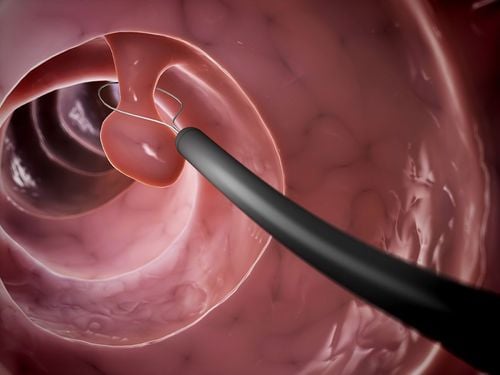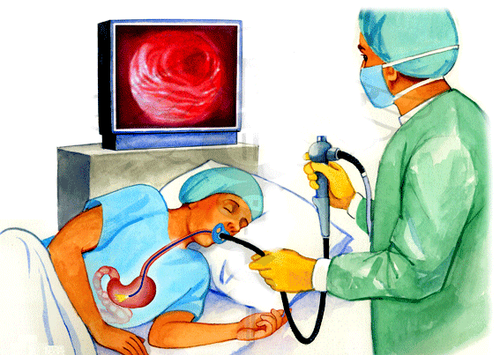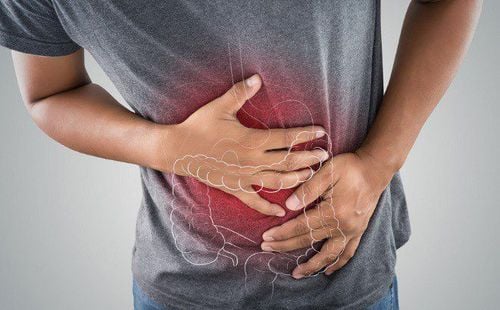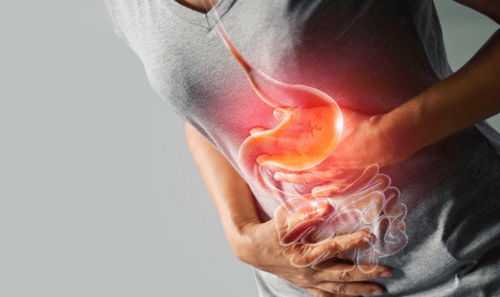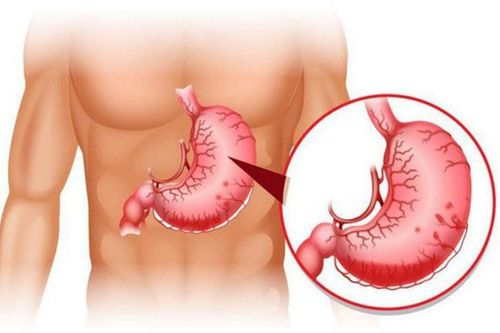This is an automatically translated article.
The article is professionally consulted by Specialist Doctor I Dong Xuan Ha - Department of Medical Examination and Internal Medicine - Vinmec Ha Long International Hospital.
Endoscopy of the stomach (stomach) is short for the procedure, including: Endoscopy of the esophagus, stomach and duodenum, applied to examine the inside of the digestive tract thanks to a camera attached to the end of the endoscope. . This procedure is widely used to diagnose and treat diseases of the esophagus, stomach, and duodenum.
1. Learn about gastroscopy
Gastroscopy is usually done by mouth for diagnosis and treatment.The doctor will order a gastroscopy to:
Determine the cause of the symptoms: The endoscopy will help the doctor determine the cause of the symptoms related to the digestive tract such as nausea , vomiting, belching, heartburn, prolonged cough, abdominal pain, difficulty swallowing and gastrointestinal bleeding.. Diagnosis: The doctor will see images and take biopsy samples for testing and diagnosis of diseases. such as anemia, hemorrhage, inflammation, diarrhea or gastrointestinal cancer. Treatment: The doctor can thread special instruments through the endoscope to treat diseases of the digestive tract such as gastrointestinal bleeding, esophageal dilation, polypectomy or removal of foreign bodies in the digestive tract. .
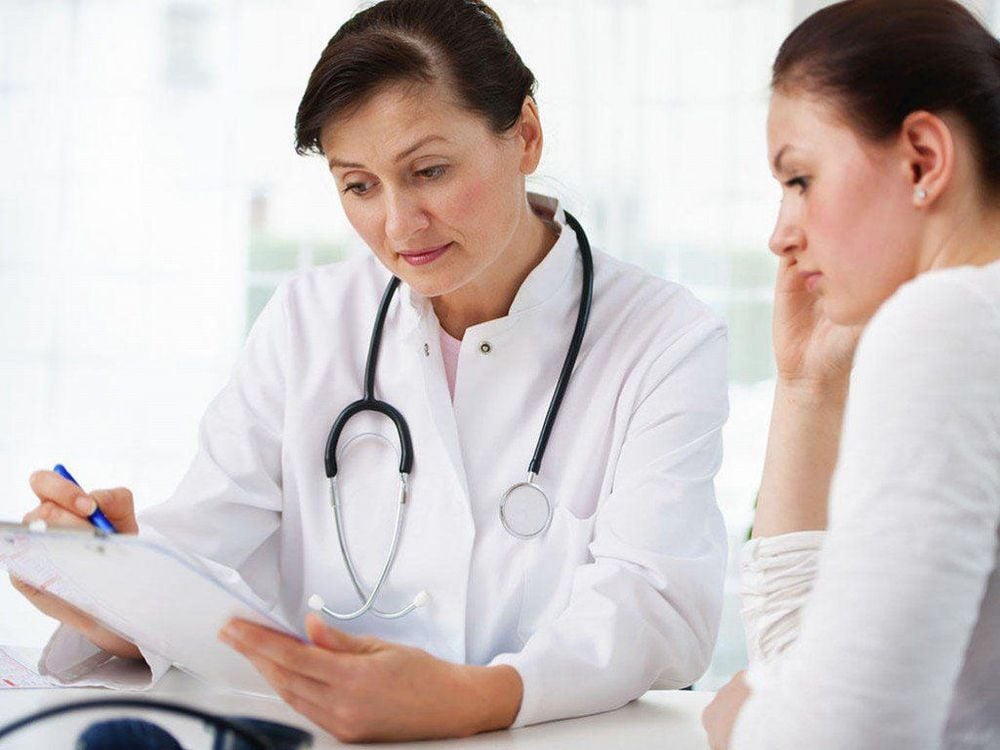
2. Steps to prepare for gastroscopy
Before the endoscopy, the anesthesiologist will check the patient's medical and surgical history and the medications the patient is taking. Patients should inform the anesthesiologist if they are taking any medications or supplements.The patient will be asked to sign a consent form confirming that they understand the possible risks of a colonoscopy and agree to the procedure. If there are any questions regarding the need for endoscopy, the risks, the procedure, or the results of the endoscopy, the patient should ask the doctor for a more specific explanation.
The doctor will give specific instructions to the patient what to do such as:
Fasting and drinking 4 to 8 hours before the endoscopy with the aim of keeping the stomach clean and convenient for the endoscopy. Stop taking certain medications, for example anticoagulation a few days before the endoscopy because anticoagulants increase the risk of bleeding in the event that certain procedures are needed during the procedure. Endoscopic. If the patient has a chronic medical condition such as diabetes, cardiovascular disease or high blood pressure, the anesthesiologist will provide specific instructions on the medications being taken. Oral endoscopy causes discomfort to the patient, so anesthetics are recommended in this case to make the patient more comfortable.
Patients only need to be hospitalized for the same day to perform this procedure in the endoscopy room. Patients should have a plan to rest after an anesthetic endoscopy. When the anesthetic wears off, the patient may still feel awake, but the patient's reflexes and judgment will be temporarily affected, so arrangements should be made for a loved one to take them home. Patients should rest for the rest of the day and should not make major decisions regarding personal or financial matters for 24 hours after the endoscopy.
2.1 Laparoscopy procedure During gastroscopy, the patient will lie on the left side. A monitoring device will be attached to the patient's body to monitor breathing, blood pressure and heart rate. Anesthesia is given through a vein in the arm to make the patient more comfortable during the procedure.
As the endoscope passes through the esophagus and down into the stomach, a very small camera at the end of the endoscope transmits images of the inside to an external monitor. The doctor will look at the images on the screen to look for abnormalities inside the digestive tract. If abnormalities are found, the doctor will take pictures and record them for examination.
It is possible that air will be gently pumped into the patient's esophagus to inflate the digestive tract, allowing the endoscope to move more easily and the doctor to better see the folds of the digestive tract. Injected air may cause the patient to feel fullness or bloating.
When needed, the doctor can thread special instruments through the endoscope to take biopsy samples or perform treatment procedures such as dilation, polyp removal, bleeding treatment... depending on the pathology being treated. detected during endoscopy.
After the endoscopy is completed, the doctor will gently remove the endoscope from the mouth, the total preparation time and gastroscopy usually lasts about 20 minutes, depending on the patient's medical condition.
2.2 Recovery after endoscopy The patient will be transferred to the recovery room and then back to the hospital ward for the day to rest and monitor for a few more hours after the endoscopy until the anesthetic wears off completely. Elderly patients need a loved one to take them home and stay with them for hours afterward.
When returning home, the patient may experience some mild discomforting signs or symptoms such as:
Bloating and abdominal pain Abdominal cramps Burning throat The above signs and symptoms will subside gradually. If the patient is worried or uncomfortable, call the doctor for advice. After endoscopy with anesthetic, the patient should rest for the rest of the day. Most patients can eat and drink normally after the endoscopy.
Currently, Vinmec digestive endoscopy unit is invested heavily to become a spearhead specialist, helping to bring healthy life to people. Vinmec is equipped with a new generation endoscopy system and superior endoscopic techniques that minimize side effects, helping patients feel secure and comfortable when performing:
Olympus gastrointestinal endoscope ( stomach, duodenum, colon) Endoscope with narrow light frequency band NBI Argon ablation stage Customers have endoscopy under absolute sterile conditions, avoiding the risk of infection, maximum safety The team of doctors Experienced doctor in the field of endoscopy and treatment of digestive diseases Customers are guided, comprehensively monitored and are cared for with dedication and thoughtfulness With 14 years of experience in the field of Endoscopy - Endoscopy Dong Xuan Ha has proficiently performed diagnostic gastrointestinal endoscopic techniques, emergency interventions and therapeutic interventions. Currently, he is a gastroenterologist at the Department of General Internal Medicine, Vinmec Ha Long International General Hospital.
Please dial HOTLINE for more information or register for an appointment HERE. Download MyVinmec app to make appointments faster and to manage your bookings easily.





